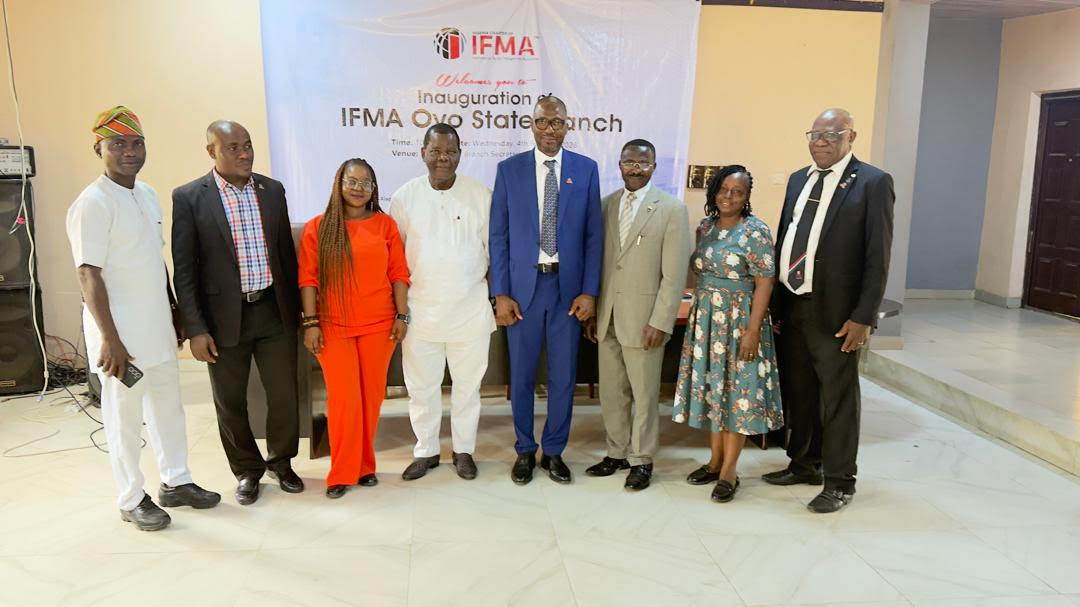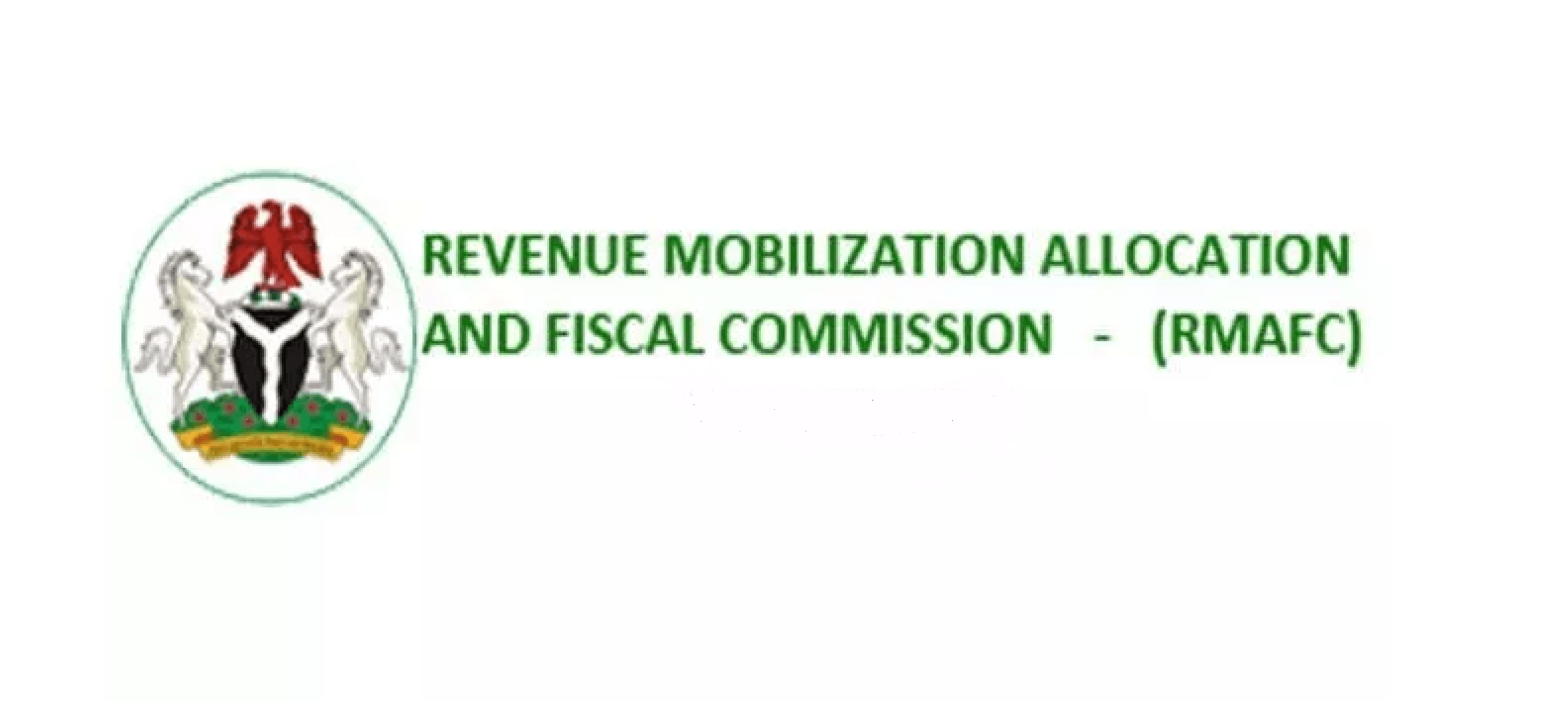General
Decline in Africa’s Business Environment Index Worrying–Report

By Modupe Gbadeyanka
A new report released on Monday by the Mo Ibrahim Foundation has expressed serious concerns about the declining Business Environment index in Africa, which it said runs counter to the growing working age population of the continent.
The 2018 Ibrahim Index of African Governance noted that the African average score for Business Environment went down by almost -5.0 points over the last 10 years, emphasising that “this is a worrying trend given that the number of working age Africans (15-64 years old) is expected to grow by almost another 30 percent over the next 10 years.”
According to a statement made available to Business Post on Tuesday, “This will increase demand for jobs in an environment where on average progress in Sustainable Economic Opportunity is almost non-existent. Such demographic figures create a further striking contrast with the drop of -3.1 points in Satisfaction with Employment Creation since 2008.”
The report further said, “Additionally, the indicator measuring Promotion of Socio-economic Integration of Youth registers an average continental decline of -2.3 over the last decade.”
The 2018 Ibrahim Index of African Governance pointed out that public governance progress in Africa was lagging behind the needs and expectations of a growing population, composed mainly of young people.
For example, the report said over the last decade, Overall Governance has on average maintained a moderate upward trajectory, with three out of four of Africa’s citizens (71.6%) living in a country where governance has improved.
African governments have struggled to translate economic growth into improved Sustainable Economic Opportunity for their citizens
Since 2008 the African average score for Sustainable Economic Opportunity has increased by 0.1 point, or 0.2%, despite a continental increase in GDP of nearly 40% over the same period.
There has been virtually no progress in creating Sustainable Economic Opportunity, meaning it remains the IIAG’s worst performing and slowest improving category.
Defined as the extent to which governments enable their citizens to pursue economic goals and prosper, the almost stagnant Sustainable Economic Opportunity trend strikes a concerning contrast with demographic growth and youth expectations. Africa’s population has increased by 26.0% over the last ten years and 60% of the continent’s 1.25 billion people are now under the age of 25.
A diverging picture across Africa
African countries show increasing divergence in Overall Governance performance. Continental progress is mainly driven by 15 countries that have managed to accelerate their pace of improvement over the last five years.
Progress is most striking in Côte d’Ivoire, Morocco and Kenya. Divergence is also reflected in Sustainable Economic Opportunity trends. While 27 of Africa’s countries have shown some improvement, in 25 countries, accounting for 43.2% of Africa’s citizens, Sustainable Economic Opportunity performance has declined over the last ten years.
There is no strong relationship between the size of a country’s economy and its performance in Sustainable Economic Opportunity. In 2017, four of the ten countries with the highest GDP on the continent score below the African average score for Sustainable Economic Opportunity and sit in the lower half of the rankings, namely: Algeria, Angola, Nigeria, and Sudan. Meanwhile two of the smallest economies on the continent, Seychelles and Cabo Verde, reach the 5th and 6th highest scores in providing Sustainable Economic Opportunity for their citizens.
Education outcomes are worsening
Further cause for concern is Education. While Human Development is one of the bigger success stories of the 2018 IIAG, driven by improvements in Health, the stalling progress in Education seen in last year’s IIAG has now turned to decline.
For 27 countries, Education scores registered deterioration in the last five years, meaning that for more than half (52.8%) of Africa’s youth population, education outcomes are worsening. This drop is driven by a fall in the indicators measuring whether Education is meeting the needs of the economy, education quality, and citizens’ expectations of education provision.
Civil society space is shrinking
Progress in Participation & Human Rights has been made on average. Almost four out of five of Africa’s citizens (79.6%) live in countries that have progressed in this dimension over the last decade. However, ‘free and fair’ executive elections do not always translate into a better participatory environment. Alarmingly, citizens’ political and civic space in Africa is shrinking, with worsening trends in indicators measuring Civil Society Participation, Civil Rights & Liberties, Freedom of Expression and Freedom of Association & Assembly.
By Modupe Gbadeyanka
A new report released on Monday by the Mo Ibrahim Foundation has expressed serious concerns about the declining Business Environment index in Africa, which it said runs counter to the growing working age population of the continent.
The 2018 Ibrahim Index of African Governance noted that the African average score for Business Environment went down by almost -5.0 points over the last 10 years, emphasising that “this is a worrying trend given that the number of working age Africans (15-64 years old) is expected to grow by almost another 30 percent over the next 10 years.”
According to a statement made available to Business Post on Tuesday, “This will increase demand for jobs in an environment where on average progress in Sustainable Economic Opportunity is almost non-existent. Such demographic figures create a further striking contrast with the drop of -3.1 points in Satisfaction with Employment Creation since 2008.”
The report further said, “Additionally, the indicator measuring Promotion of Socio-economic Integration of Youth registers an average continental decline of -2.3 over the last decade.”
Business Post reports that the 2018 Ibrahim Index of African Governance pointed out that public governance progress in Africa is lagging behind the needs and expectations of a growing population, composed mainly of young people.
The report said over the last decade, Overall Governance has on average maintained a moderate upward trajectory, with three out of four of Africa’s citizens (71.6%) living in a country where governance has improved.
African governments have struggled to translate economic growth into improved Sustainable Economic Opportunity for their citizens
Since 2008 the African average score for Sustainable Economic Opportunity has increased by 0.1 point, or 0.2%, despite a continental increase in GDP of nearly 40% over the same period.
There has been virtually no progress in creating Sustainable Economic Opportunity, meaning it remains the IIAG’s worst performing and slowest improving category.
Defined as the extent to which governments enable their citizens to pursue economic goals and prosper, the almost stagnant Sustainable Economic Opportunity trend strikes a concerning contrast with demographic growth and youth expectations. Africa’s population has increased by 26.0% over the last ten years and 60% of the continent’s 1.25 billion people are now under the age of 25.
A diverging picture across Africa
African countries show increasing divergence in Overall Governance performance. Continental progress is mainly driven by 15 countries that have managed to accelerate their pace of improvement over the last five years.
Progress is most striking in Côte d’Ivoire, Morocco and Kenya. Divergence is also reflected in Sustainable Economic Opportunity trends. While 27 of Africa’s countries have shown some improvement, in 25 countries, accounting for 43.2% of Africa’s citizens, Sustainable Economic Opportunity performance has declined over the last ten years.
There is no strong relationship between the size of a country’s economy and its performance in Sustainable Economic Opportunity. In 2017, four of the ten countries with the highest GDP on the continent score below the African average score for Sustainable Economic Opportunity and sit in the lower half of the rankings, namely: Algeria, Angola, Nigeria, and Sudan. Meanwhile two of the smallest economies on the continent, Seychelles and Cabo Verde, reach the 5th and 6th highest scores in providing Sustainable Economic Opportunity for their citizens.
Education outcomes are worsening
Further cause for concern is Education. While Human Development is one of the bigger success stories of the 2018 IIAG, driven by improvements in Health, the stalling progress in Education seen in last year’s IIAG has now turned to decline.
For 27 countries, Education scores registered deterioration in the last five years, meaning that for more than half (52.8%) of Africa’s youth population, education outcomes are worsening. This drop is driven by a fall in the indicators measuring whether Education is meeting the needs of the economy, education quality, and citizens’ expectations of education provision.
Civil society space is shrinking
Progress in Participation & Human Rights has been made on average. Almost four out of five of Africa’s citizens (79.6%) live in countries that have progressed in this dimension over the last decade. However, ‘free and fair’ executive elections do not always translate into a better participatory environment. Alarmingly, citizens’ political and civic space in Africa is shrinking, with worsening trends in indicators measuring Civil Society Participation, Civil Rights & Liberties, Freedom of Expression and Freedom of Association & Assembly.
Welcome progress in Rule of Law and Transparency & Accountability, which are key to sound governance performance
Although Personal Safety and National Security continue to show average decline over the last decade, Rule of Law and Transparency & Accountability have begun to register welcome progress. Rule of Law is the most improved sub-category in the IIAG over the last five years. African average performance in Transparency & Accountability has also improved, though more needs to be done as it remains the worst performing sub-category.
The IIAG highlights that citizens’ rights and welfare are key to progress in public governance. Overall Governance scores are strongly correlated with citizen-centred measures, including property rights, civil rights & liberties, government accountability and social welfare policies.
The IIAG results also confirm that Rule of Law and Transparency & Accountability are key pillars of good governance. These two sub-categories show the strongest relationships with Overall Governance scores in Africa, with strong performance in these areas being the most common components of countries that perform well. Transparency & Accountability is also strongly related to the Sustainable Economic Opportunity category and Business Environment sub-category, indicating that improvements in these areas will support progress and economic opportunity in Africa.
Commenting on the report, Chairman of the Mo Ibrahim Foundation, Mr Mo Ibrahim, stated that, “We welcome progress in Overall Governance, but the lost opportunity of the past decade is deeply concerning. Africa has a huge challenge ahead. Its large and youthful potential workforce could transform the continent for the better, but this opportunity is close to being squandered.
“The evidence is clear – young citizens of Africa need hope, prospects and opportunities. Its leaders need to speed up job creation to sustain progress and stave off deterioration. The time to act is now.”
Although Personal Safety and National Security continue to show average decline over the last decade, Rule of Law and Transparency & Accountability have begun to register welcome progress. Rule of Law is the most improved sub-category in the IIAG over the last five years. African average performance in Transparency & Accountability has also improved, though more needs to be done as it remains the worst performing sub-category.
The IIAG highlights that citizens’ rights and welfare are key to progress in public governance. Overall Governance scores are strongly correlated with citizen-centred measures, including property rights, civil rights & liberties, government accountability and social welfare policies.
The IIAG results also confirm that Rule of Law and Transparency & Accountability are key pillars of good governance. These two sub-categories show the strongest relationships with Overall Governance scores in Africa, with strong performance in these areas being the most common components of countries that perform well. Transparency & Accountability is also strongly related to the Sustainable Economic Opportunity category and Business Environment sub-category, indicating that improvements in these areas will support progress and economic opportunity in Africa.
Commenting on the report, Chairman of the Mo Ibrahim Foundation, Mr Mo Ibrahim, stated that, “We welcome progress in Overall Governance, but the lost opportunity of the past decade is deeply concerning. Africa has a huge challenge ahead. Its large and youthful potential workforce could transform the continent for the better, but this opportunity is close to being squandered.
“The evidence is clear – young citizens of Africa need hope, prospects and opportunities. Its leaders need to speed up job creation to sustain progress and stave off deterioration. The time to act is now.”
General
IFMA Nigeria Gets Branch in Oyo, Picks Adejumo Olusola Babatunde as Coordinator

By Modupe Gbadeyanka
A new branch of the International Facility Management Association (IFMA) Nigeria Chapter has been established in Oyo State, with Mr Adejumo Olusola Babatunde chosen as Coordinator.
The organisation set up an arm in the South-West state in a bid to expand its footprint in the country. Mr Babatunde will be assisted by other executive committee members, including Mr Ajiboye Olusola Akeem as Secretary, and Mrs Adeniran Olaide as Treasurer.
At the inauguration of the branch at the Nigerian Society of Engineers (NSE) Secretariat in the Akobo area of Ibadan, the Oyo State capital, the president of IFMA Nigeria, Mr Sheriff Daramola, expressed delight at the successful inauguration of the branch and commended members for their commitment to the growth of facility management in Nigeria.
He highlighted IFMA’s global heritage, noting that the association is supporting over 25,000 members in more than 140 countries worldwide. Mr Daramola emphasised IFMA’s strong global network, the world’s largest and most widely recognised association for facility management professionals, headquartered in the United States and its growing influence in Africa, the Middle East and Europe.
“IFMA members have taken positions of authority across federal, state, and private institutions; IFMA Nigeria is positioned to ensure our professionals are the first choice for global investors entering the Nigerian market,” he stated.
The Legal Adviser of IFMA, Nigeria, Mr Sola Fatoki, who shared this sentiment, said, “Since 1997, when IFMA Nigeria was established, the association has equipped facility management professionals with integrated knowledge spanning human behaviour, infrastructure, and the built environment.”
He encouraged engineers, architects, surveyors, ITC, Technology innovators, data analysts and allied professionals to see IFMA as their professional home and outlined the functions and responsibilities of branch executive committees.
In his remarks, Mr Babatunde expressed gratitude to the national council for the opportunity to serve and pledged to ensure the success of the branch, focusing on unity and the professional advancement of stakeholders in the region.
General
We Didn’t Recommend Ceding Disputed Oil Wells to States—RMAFC

By Adedapo Adesanya
The Revenue Mobilisation Allocation and Fiscal Commission (RMAFC) has denied reports that some disputed crude oil and gas wells have been recommended for ceding to specific oil-producing states.
In a statement issued on Sunday, the chairman of the commission, Mr Mohammed Shehu, said the attention of RMAFC had been drawn to a “purported report allegedly issued by the Inter-Agency Committee on the Verification of Coordinates of Disputed Crude Oil and Gas Wells between States,” which was circulating in sections of the national media (excluding Business Post).
The agency described the report as “misleading, premature, and does not represent the position or conclusions of the Commission.”
“At this stage, there is no finalised recommendation or decision regarding the ceding or reallocation of any oil wells, as due institutional processes are still ongoing,” the statement read.
The organisation explained that it operates a clearly defined and transparent procedure in handling assignments of national significance, stressing that the process on the disputed oil wells had not been concluded.
It disclosed that it only received a draft report from the Federal Government’s Inter-Agency Committee on Nigeria’s Oil-Producing States on Friday, February 13, 2026, which reportedly projected Cross River State as an oil-producing state.
The report, covering the nationwide 2017–2025 verification of crude oil and gas coordinates, was presented to the Chairman of RMAFC by 10 of the 14 members of the committee.
The exercise, which ran from August 2025 to February 2026, involved extensive field verification, technical reconciliation of state submissions, and a final plenary plotting of coordinates at RMAFC headquarters between January 24 and 31, 2026.
“Consistent with established protocol, the draft document has been transmitted to relevant technical and statutory stakeholders, namely the Nigerian Upstream Petroleum Regulatory Commission, the National Boundary Commission, and the Office of the Surveyor General of the Federation, for detailed review, observations, and technical input,” the commission stated.
According to the statement, after the observations and recommendations of the agencies are received, the matter will be subjected to further scrutiny by the commission’s internal tripartite committees, comprising the Committee on Crude Oil, Gas and Investment and the Legal Matters Committee.
“These committees will undertake comprehensive technical and legal reviews before presenting their findings to the Plenary Session of RMAFC for deliberation and final recommendations,” it added.
The commission further explained that upon completion of the institutional processes, its final report would be formally transmitted to the President and the Attorney-General of the Federation for necessary consideration and further action in line with applicable laws and constitutional provisions.
General
Social Media Platform X Suffers Outages Globally

By Adedapo Adesanya
Social media platform, X, formerly known as Twitter, suffered an outage globally on Monday as millions of users could not use the service.
The widespread outages have been reported by thousands of users across several countries, including Nigeria, the United States, the United Kingdom, Turkey, and India, among others.
According to data from Downdetector, a website that tracks service disruptions based on user reports, complaints about access to X started to pick up around 1:00 p.m. local time in Nigeria.
The cause of the outage was not immediately clear, and X has not put out any comment, but users told Business Post that the platform is not loading or cannot be reached, and the pattern of complaints suggests the issue is not limited to a single region.
Its developer platform status page stated “all systems are operational” all morning despite the reports.
The outage is the latest to hit internet services. X suffered a similar outage in March 2025, while a Cloudflare service outage caused access problems and downtime for various websites, including X, last November.
Microsoft’s Azure had also faced an issue last year, while disruption at Amazon AWS caused global turmoil among thousands of websites and some of the most popular apps, such as Snapchat and Reddit in October
-

 Feature/OPED6 years ago
Feature/OPED6 years agoDavos was Different this year
-
Travel/Tourism10 years ago
Lagos Seals Western Lodge Hotel In Ikorodu
-

 Showbiz3 years ago
Showbiz3 years agoEstranged Lover Releases Videos of Empress Njamah Bathing
-

 Banking8 years ago
Banking8 years agoSort Codes of GTBank Branches in Nigeria
-

 Economy3 years ago
Economy3 years agoSubsidy Removal: CNG at N130 Per Litre Cheaper Than Petrol—IPMAN
-

 Banking3 years ago
Banking3 years agoSort Codes of UBA Branches in Nigeria
-

 Banking3 years ago
Banking3 years agoFirst Bank Announces Planned Downtime
-

 Sports3 years ago
Sports3 years agoHighest Paid Nigerian Footballer – How Much Do Nigerian Footballers Earn












